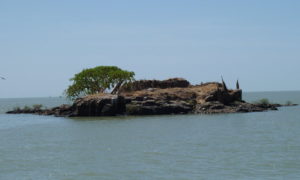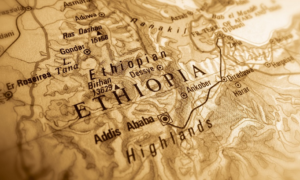Article from Thomson Reuters Foundation:
NAIROBI
Negotiators locked horns until 2 a.m. some nights in New York this past month, trying to agree on a way to finance the United Nation’s bold new global development agenda — without success.
The disputed 31-page document is headed to the Ethiopian capital, Addis Ababa, where some 190 nations hope to agree on how to bankroll ending poverty and hunger, combating climate change and achieving gender equality by 2030.
Around 5,000 people are expected to attend the four-day financing conference, opening on July 13, to decide on ways of paying for 17 Sustainable Development Goals (SDGs), due to be adopted in September.
In a world where growth is slowing, foreign assistance budgets are shrinking, and scepticism towards aid and multinationals is growing, finding the resources to achieve the ambitious goals will be tough.
“If you set the menu, have you got the dollars to pay the bill?” said Amina Mohamed, the U.N. Secretary-General’s Special Adviser on Post-2015 Development Planning.
“That’s what Addis is about.”
The finance meeting is a critical first step on the road towards signing the SDGs in New York in September, as well as a climate change agreement in Paris in December.
“They really want to have the momentum going the right way,” said Lynn Wagner, an expert on international negotiations with the International Institute for Sustainable Development.
STICKING POINT
The main sticking point in Addis Ababa is a standoff over a push by the G77 developing countries to upgrade a U.N. tax body, which they hope would set new global rules to crackdown on tax dodging, mainly by multinationals.
Nearly $1 trillion in illicit finance, flowing from tax evasion, crime and corruption, is estimated to leave poor countries each year, according to Global Financial Integrity (GFI), a policy research group.
For every $1 in aid going into a developing country, $10 is lost via these illicit outflows, it says.
The G77 wants the current U.N. tax committee to be upgraded to a political body with more power and money.
The proposal is fiercely opposed by the rich countries of the Organisation for Economic Cooperation and Development (OECD), which drew up the current tax rules.
As tax avoidance has come under public scrutiny, the OECD is working on a reform initiative with the G20 leading economies, due to be finalised in November.
More than 100 countries are excluded from this process, according to the European Network on Debt and Development.
“Except for the OECD and G20 countries, nobody gets a vote,” said Pooja Rangaprasad, policy coordinator for the Financial Transparency Coalition, which includes GFI. “Developing countries are saying that’s undemocratic and they should be at the table.”
TRILLIONS
Huge sums are required to fund the SDGs, between $3.3 and $4.5 trillion a year, according to the U.N. Conference on Trade and Development (UNCTAD). This is roughly equivalent to the United States 2016 federal budget of $3.8 trillion.
Current spending on infrastructure, education and health leaves a funding gap of some $2.5 trillion, UNCTAD said, much of which would have to come from the private sector.
This requires a radical shift in thinking about development finance, experts said.
“It’s going to push people past their comfort zones,” said the U.N.’s Amina Mohamed. “This is not going to be easy.”
Public money alone cannot fund the SDGs, although many are keen for its importance in providing essential services like health and education to be recognised in the Addis Ababa accord.
Development aid from OECD countries was $135 billion in 2014. Rich countries have been reluctant to recommit, with a timeline, to devote 0.7 percent of their GDP to aid, a target first adopted by the U.N. in 1970.
To date, only five countries have done so, with most contributing less than half of this.
“It’s just a question of political will,” said Romilly Greenhill, a researcher with the Overseas Development Institute think tank in London, which is lobbying for half of this money to be spent on the poorest, most fragile states.
INVESTMENT
While aid is needed to support development in the world’s poorest states, many fast-growing developing countries will be able to meet a large part of the financing gap themselves — if rules around tax and investment are reformed, said Matti Kohonen a policy expert at Christian Aid.
Developing countries attract more than 50 percent of foreign direct investment worldwide, up from less than 20 percent in 1990, OECD said.
“Aid discussions risk forming a sideshow to the real issues that constrain (the) pursuit of sustainable development,” the Brookings Institution said in a recent paper.
The think tank called for $1 trillion a year of private investment in low-carbon infrastructure and new rules to ensure responsible investment by multinationals and extractive industries.
Many advocacy groups are disappointed with the current draft of the Addis Ababa accord which, they say, acknowledges many issues but lacks real action points.
The document contains too much “fuzzy” language, said Harjeet Singh, ActionAid’s International Coordinator on Disaster Risk Reduction and Climate Adaptation.
“There are so many crises happening at this moment but the document shows no courage, no urgency in dealing with that, and no specifics,” he said.
“It’s going to take the fizz out of all the excitement one was hoping to see around the SDGs… It’s like you are building a train, but you are not really putting fuel into it so the vehicle can’t move.”
(Reporting by Katy Migiro; Editing by Ros Russell; Please credit the Thomson Reuters Foundation, the charitable arm of Thomson Reuters, that covers humanitarian news, women’s rights, corruption and climate change. Visit www.trust.org)






